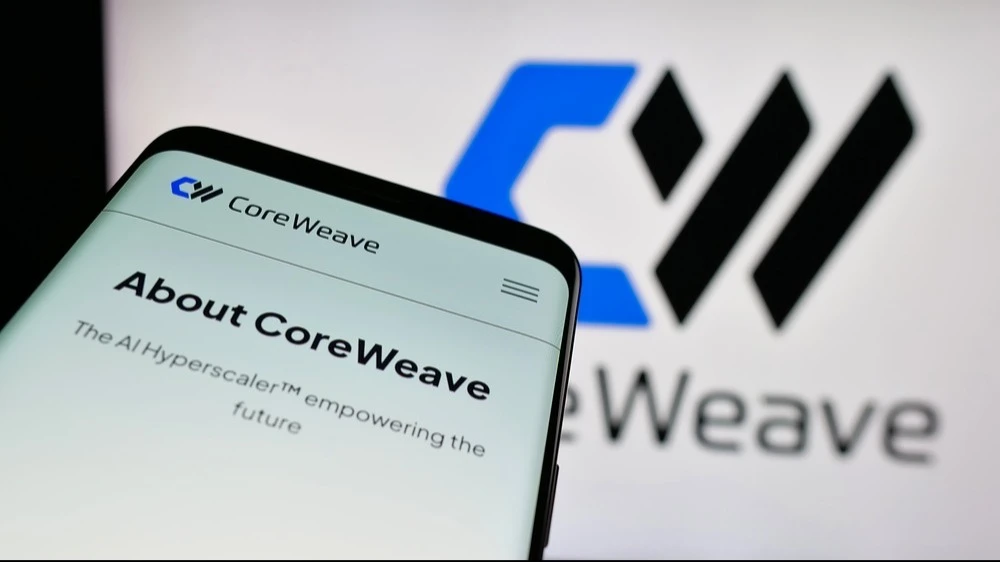Immediately two analysts declined to advise buying CoreWeave stock. Are they overvalued?
Since listing on the Nasdaq exchange three months ago, CoreWeave's market value has increased by nearly 300%

Two Wall Street analysts - representing Mizuho Securities and Stifel - downgraded the shares of CoreWeave, a provider of cloud-based services for developing and training AI models, and declined to advise buying them. Wall Street is generally cautious about the securities, which are already starting to be compared to "meme" stocks because of the sharp increase in price. At the trading on July 8, CoreWeave quotes were falling by 4%.
Details
Mizuho analyst Gregg Moskowitz downgraded CoreWeave from Outperform ("above market") to Hold, but raised the target price of the company's securities from $70 to $150, reported MarketWatch. The new target implies a 6% drop in CoreWeave's market value from its July 7 closing price.
Moskovitz remains positive about CoreWeave's long-term prospects, but points to the rapid - almost 300% - growth of quotes since the IPO and unfavorable ratio of risk to potential profitability. One of the problems is the dependence on a limited number of customers: for example, about 72% of revenue in the first quarter brought contracts with Microsoft, writes MarketWatch.
"CoreWeave has a high dependence on a limited number of customers, and its competitive position in the load segment for inferencing (the ability of AI models to make predictions and inferences. - Oninvest) remains unobvious for now - including because of the likely increase in interest in specialized chips," Moskowitz said in a note quoted by CNBC.
Mizuho analyst positively assessed the announced CoreWeave deal to buy infrastructure solutions provider Core Scientific for about $9 billion in stock. The acquisition will allow CoreWeave to build vertical integration, cut costs and increase financial flexibility, but without increasing its debt load, the analyst said.
What Stifel thinks
Stifel analyst Ruben Roy also downgraded the company's securities from Buy to Hold, and raised the target price from $75 to $115. But Stifel's new target implies a 28% drop in the company's stock price. The purchase of Core Scientific is a positive move overall, but it could temporarily cool investor interest in CoreWeave shares, Roy warned.
"This deal may accelerate the scaling of infrastructure for AI and high-performance computing, but the company's move to a vertically integrated model changes the way it is valued. Right now, the securities are already fairly valued, in our view," the analyst said in a note cited by CNBC.
What about the stock
CoreWeave's shares fell 4% to $153.3 at one point in trading on July 8. However, since listing on the Nasdaq exchange, which took place on March 28 and was the largest tech IPO in the U.S. since 2021, the company's market value has soared nearly 300%.
That steep appreciation has led some analysts to compare the company's stock to a "meme," whose rapid rise is attributed to excitement among retail traders rather than actual financial performance. CoreWeave posted a net loss of $315 million in the first quarter of 2025, and its earnings guidance for the current quarter failed to meet investors' expectations.
What others think
Another Mizuho analyst, Jordan Klein, said in a separate comment to MarketWatch that CoreWeave's stock valuation is too high. He said it's "hard for anyone to justify such a high valuation right now, even with growth and major new contracts, including agreements with OpenAI."
Citi analyst Tyler Radke also warned that CoreWeave's stock could sag in the short term, as investors may prefer to buy Core Scientific shares at a significant discount and get more expensive CoreWeave securities after the deal is finalized. "We see downside risk: the CoreWeave bulls may choose to buy Core Scientific, which is now trading about 30% below the announced deal price," he said.
Radke also emphasized that Citi would like to see greater diversification of the company's customer base and progress toward profitability. The bank's forecast for CoreWeave is $160 per share, which is almost in line with the current market price.
CFRA analyst Angelo Zino initiated coverage on shares of CoreWeave with a hold recommendation on Monday, July 7, MarketWatch notes. Zino, too, noted the positive effects of the financial flexibility the Core Scientific deal could bring, but expressed concern about the impending end of the stock's lockup period. Once it ends, insiders who, by rule, couldn't sell CoreWeave securities after the IPO for a certain amount of time will soon be able to start getting rid of the securities.
60% of analysts, who have given ratings to the company's shares, take a neutral stance with a Hold advice. Another 30% advise investors to buy them, while the rest advise them to sell. Wall Street's consensus target price on CoreWeave's securities suggests they will fall by nearly half.
This article was AI-translated and verified by a human editor
